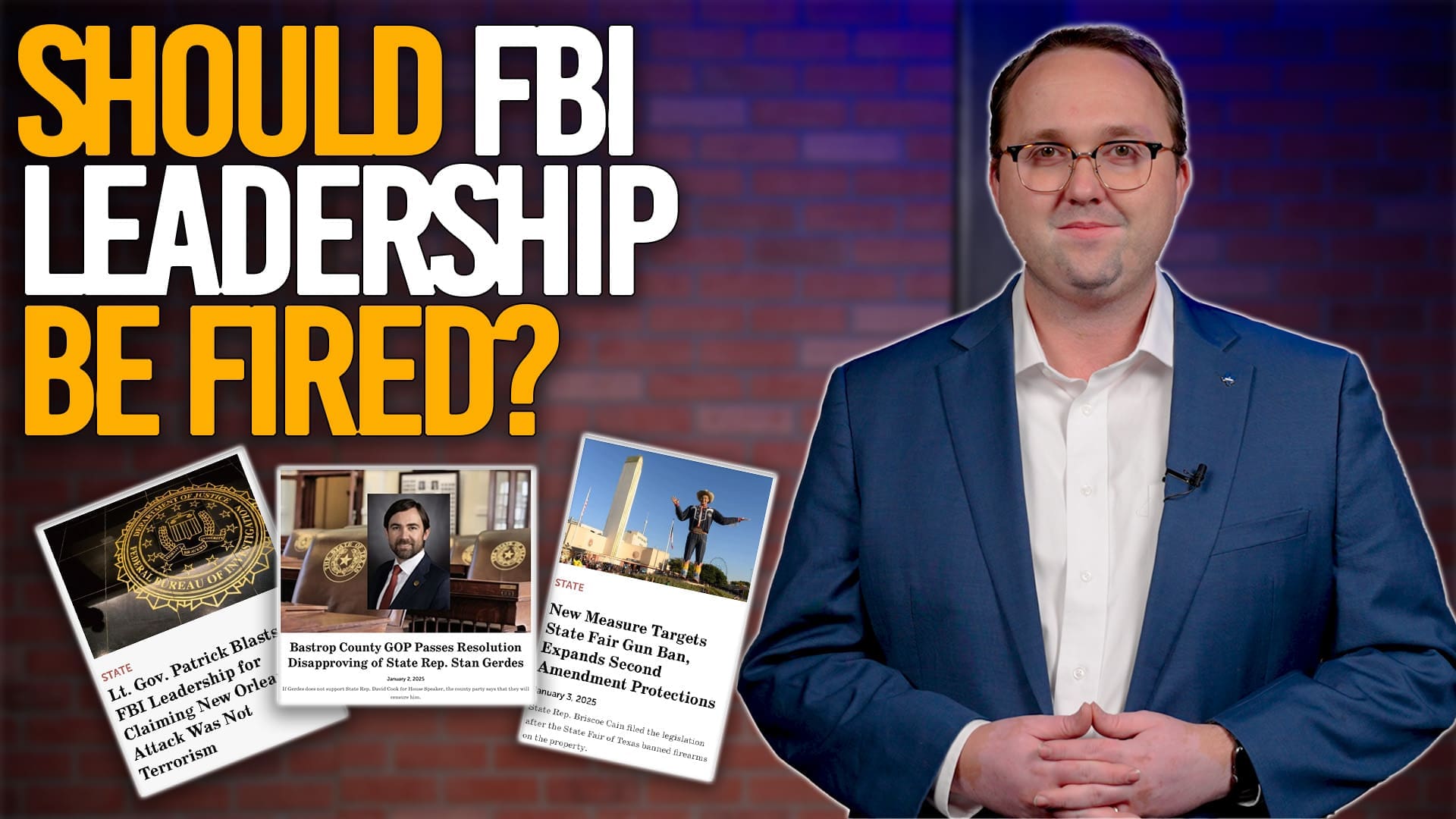Outrage over the Texas Legislature’s special treatment of billionaire Warren Buffett is percolating quickly through the grassroots. Critics are right to be upset, but not necessarily for the reasons that have been presented.
Last week Gov. Greg Abbott and Lt. Gov. Dan Patrick met briefly with the “Oracle of Omaha” concerning his business’ conflict with the state’s regulatory regime for auto sales. A day later the Texas Senate suspended its rules to allow for the filing of a carve-out benefitting the Nebraska billionaire’s business, and putting much of the Austin lobby sphere (and a good number of grassroots activists) in fits.
Many have shouted “cronyism” and complained that Buffett is being given a special privilege to violate the state’s laws. That criticism misses the mark.
Senate Bill 2279 by State Sen. Kelly Hancock (R–North Richland Hills) would create an exception to benefit Buffett, but it seems to be a common sense one and it would apply generally.
Buffett owns an RV manufacturer in Indiana, and by current Texas law, that alone could prevent him from keeping 29 car dealerships in Texas where his company, Berkshire Hathaway Automotive, has an ownership stake. SB 2279 would solve Buffett’s problem by allowing manufacturers of one type of automobile (RVs) to own dealerships for another type of automobile (cars).
Texas’ laws concerning car dealerships are notoriously restrictive; something anyone familiar with the electric car company Tesla and its legislative struggles knows well.
The current regulatory regime not only prevents car manufacturers from selling their vehicles directly to consumers, it prevents any automobile manufacturer from owning any automobile dealership. And with a wide applicability, the law even applies to Mr. Buffett’s RV manufacturing company.
For years, Tesla has been seeking to undo these laws, first through a carve-out which many conservatives opposed, and later through a free-market proposal to eliminate the restrictive laws for everyone. That’s something grassroots conservatives do support, but lawmakers so far have refused to break ranks with the auto dealers.
Opposed by the politically powerful Texas Automobile Dealers Association, Tesla has failed to gain traction in either chamber of the Texas Legislature and has seen its legislation die each session. But TADA didn’t oppose Buffett in seeking his carve-out. They supported him.
Indeed, they argue that Buffett’s dealerships were never intended to be regulated by the law, which was only intended to impact companies who manufacture and sell the same product. In other words, the law wasn’t written to exclude widget manufacturers from selling wombles, only to prohibit the direct sales of widgets.
It also didn’t hurt that Buffett’s 29 car dealerships are all politically active members of TADA.
So are the criticisms valid? Yes and No.
They’re invalid to the extent that they complain the bill is unacceptable. The fact is the Buffett bill isn’t particularly unusual in Austin and, although it is a small work-around and not the major reform conservatives want, it makes sense in a vacuum.
Had Buffett hired a team of lobbyists and began working on his carve out last Fall, it wouldn’t have received a fraction of the media attention. Arguably the Austin lobby is only upset now because Buffett showed up in late April and is resolving the matter on his own without following the usual playbook and without playing their game and filling their pockets.
And despite the bad optics, the exception makes sense and it’s much more politically feasible for lawmakers to adjust the law rather than try to overturn it entirely, an action sure draw the opposition of TADA. And in regard to criticism of Buffett for not demanding a free-market bill rather than an exemption, citizens should remember that Buffett doesn’t have a fiduciary obligation to fight for the free-market. His duties are only to his shareholders.
To quote a conservative activist, “It’s not Buffett’s job to fight to overturn the whole law, though it would certainly be nice if he did.”
Tesla’s criticism is even more hypocritical when citizens remember that not too long ago they pushed a bill that truly would have only benefited their company.
But what about criticisms from the grassroots? Some of them are well founded.
The complaint that Buffett broke from the regular order of business by seeking direct redress shouldn’t be a concern. After all, conservatives aren’t looking for a seat at the table, we’re trying to get rid of the table. Buffett shouldn’t be faulted for coming and making the appeal himself, nor should legislators and statewide leaders be faulted for listening to his concerns.
However, it is valid to bristle that an out-of-state, Democrat billionaire is getting preferential treatment from lawmakers compared to the treatment the grassroots receive every day.
There’s no legislative expressway for the everyday Texans who put legislators in office.
Instead, the grassroots are told time and again that their State Senator or their State Representative “ran out of time” or that their issue got “bogged down in the process” and failed to pass. Rather than bringing home results, most lawmakers come back to their districts with a litany of excuses for why the common sense demands of millions of Texans failed to pass.
Even Lt. Gov. Dan Patrick and the Texas Senate, which have been moving quickly and earnestly through a large number of conservative reforms, are going to end the session with a lot of work unfinished. It will be hard for them to defend themselves when citizens point out that they didn’t seem to tackle their priorities with the same zeal they showed when the billionaire Buffett came to town.
For some lawmakers it will be easier than others. Constitutents of State Sens. Konni Burton (R–Colleyville) and Van Taylor’s (R–Plano) know they are fighting on the front lines each day of the session, but what about other lawmakers who are less outspoken? What about lawmakers who aren’t visibly and actively promoting the conservative reforms citizens demand. Do their constituents know that they’re truly fighting for them and not corporate interests?
Time will tell. As soon as the legislature adjourns, Texas will move into “accountability season” where citizens can decide if their lawmakers are worthy of coming back to Austin.
Conservatives shouldn’t necessary scold legislators for how they handled one little bill being promoted by a very big guy. But they should demand the same urgency and special attention to the big bills that are supported by millions of little guys. And for those who refuse to be responsive to Texans, they need to be shown the door.





